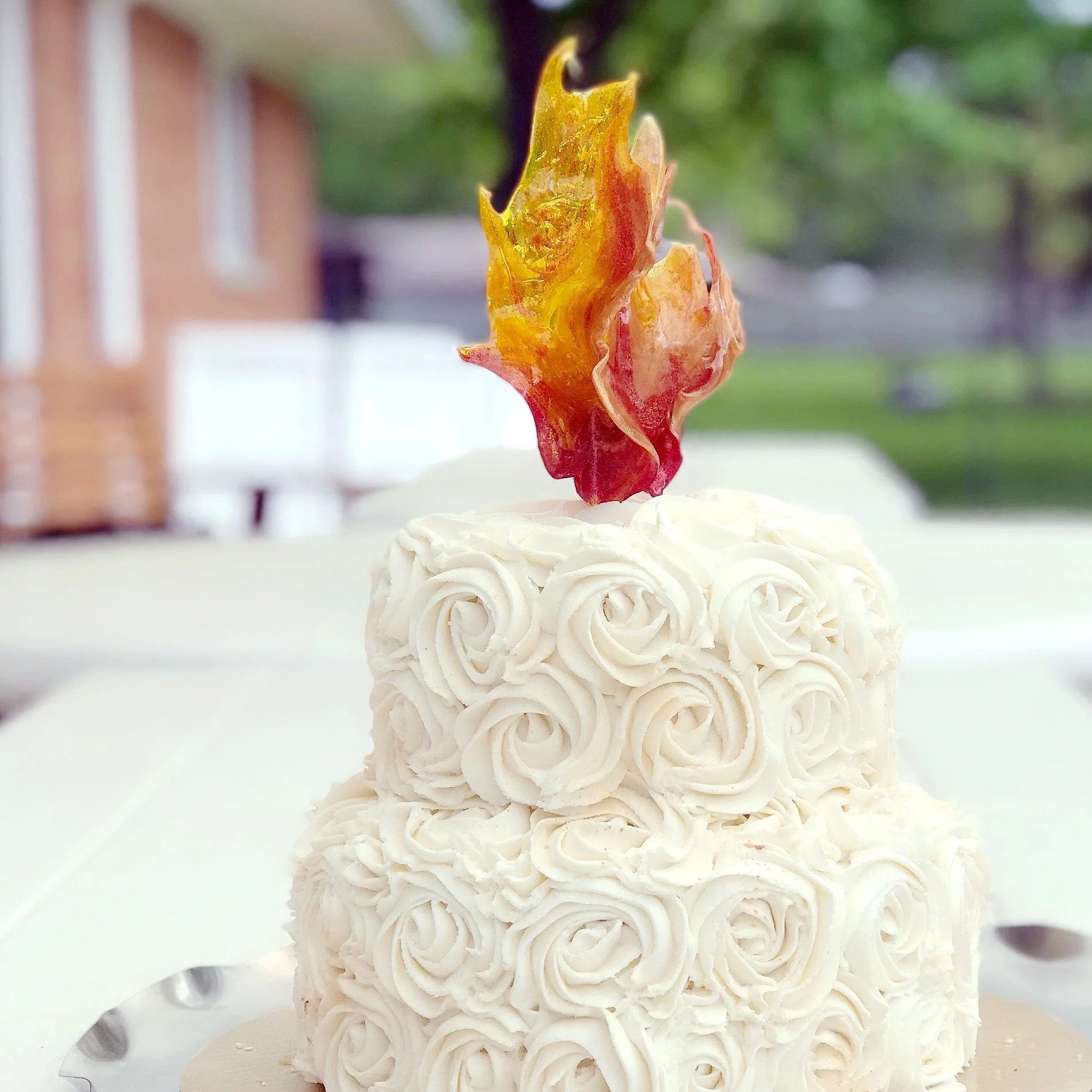Traveling With Your Sensitive Toddler
/{This post contains affiliate links. More info Here.}
"I want to go home."
She looked straight into my eyes and I knew she wasn't bluffing. She wasn't whining, she was insisting. We had been on the road for only an hour. Yes, this was going to be a long trip. She repeated those words many times over the next week and then finally, we were home. But the middle days... Oh those middle days.
Having raised 6 children out of toddlerhood (so far), I should be the expert. I should have been completely prepared for my 7th when she reached the age of two. Not so much.
My current toddler is brilliant, loving, and sweet but she also happens to be highly sensitive. Call it a sensory processing issue or whatever... she's an amazing kid with huge intensity. Add a new baby brother to her world and... BOOM... many of you have toddlers and you know what that looks like!
So our recent 9-hour trip to drop my oldest off at college was a source of anxiety for me. My own stress level was only secondary to hers and that was the fundamental problem and my primary concern. She's an amazing kid who loves life in a big way; but life gets bigger and bigger for her until it overwhelms.
Too much too often too quickly too loudly.
I had no idea how we would help her navigate all the sounds, sights, smells, strange people, noises, and routine disruptions. Naturally, I consulted the Parenting Manual under the section "How to Mother a Passionate Toddler" and read...
HaHaHaHaHaHa!
Right. That's what I thought it would say. But with a little planning and a lot of compassion and patience, we made it and it wasn't horrible. For those of you who have sweet little tigers like mine - full of life and love and then some - I've compiled a few tips that helped with our trip. Again, I'm no expert and haven't experienced much of this with my other kids, but these are things that helped my girl...
- Pay attention to the Bucket
- Buy a carrier and use it
- Sleep consistency
- Grounding tools
- Sit down and read books
- Good Nutrition (No candy!)
- Limit activities
- Steady Discipline
- Plan B (When all else fails)
1. PAY ATTENTION TO THE BUCKET
The "bucket theory" for human beings goes something like this: The body is like a bucket and fills over time, drop by drop. When the bucket is filled with toxins, irritants, allergens, etc., it starts to overflow and react. There's only so much it can hold without negative effect. For a sensitive child (or adult), each new person, sound, smell, etc. fills the bucket and sometimes cause an overflow.
For a toddler, "overflow" = breakdown.
I can tell you firsthand that once the bucket is full, it takes a long time to empty it. Preventing the full bucket in the first place is much easier than restoring it to a healthy level. All of the tips that follow below are geared toward keeping drips below the brim while traveling. (Here's a link to a brief and helpful overview of the bucket theory for sensitive people: The Bucket)
2. BUY A CARRIER AND USE IT
For the times when the world is just too big for a toddler, a carrier is parenting gold. Being close to you is a stress reliever. You become a safe zone... home base... and they never have to leave it even on the go.
Our Ergobaby carrier carries up to 45 pouds so it's perfect for a toddler. She's too heavy for me but my sons and husband can carry her easily. We have both the Performance model and the original and the guys really love the Performance.
3. SLEEP CONSISTENCY
It is helpful to keep sleep habits and location as consistent as possible. My smarty pants 3-year old was definitely nervous about all the places we were going since they were all new. She kept asking to go home and we couldn't oblige... but we were at least able to come back to the same hotel bed every night. We had the opportunity to stay with friends but we opted not to (much to the other kids' chagrin) and instead made an investment in stability and toddler peace.
If location consistency isn't possible, keep the routine and accessories consistent. Same blanket. Same pillow. Same stuffed animal. Same PJ's. Same prayers. Same kisses and hugs.
4. GROUNDING TOOLS
Bring the familiar. Bring the controllable. Be prepared to place something in their hands to help help them feel secure when all else seems to them like it's hectic, scary, and unfamiliar. My daughter likes to draw and erase and she will work feverishly at a little dry erase board when she is stressed. She also likes to look at familiar pictures on our phones or other devices. I've noticed that when she's feeling anxious or tired, she usually asks for pictures. It has become something of a cue for us, letting us know that she needs decompressing.
Another tool we prepared in advance was a teething toy. Even though she's 3 now, we've noticed that she chews things to bits when she's out of sorts; clothes, books, purses, whatever. So we bought a pretty pink chewy thing in the baby section and when the going got tough in the car, presented it to her. She was skeptical at first (You mean I'm allowed to chew on this?) and a little sheepish (she knew it was for babies) but ended up falling happily asleep with it in her sweet little paws.
Calming essential oils are another wonderful tool. Find your child's favorite calming and "happy" oils before the trip and have them ready.
5. SIT DOWN AND READ HER BOOKS
As long as she hasn't moved past the reasonable stage, this IS the magic pill of toddlerhood.
6. GOOD NUTRITION {NO CANDY}
When my older kids were smaller and needed to spend long hours waiting at the pool or gym, I often controlled their behavior by bringing snacks or treats. Most of the time that meant candy or garbage food. I learned the hard way that candy makes people feel lousy and causes energy crashes. Yes, there are times to thank God for the well-timed lollipop but regular use backfires.
If a kid feels lousy, she will act lousy. Keeping her body nourished properly and in a timely manner saves us (and her) and lot of misery, especially when on the road. She's hungry and it's not dinner time? At this age it doesn't matter... feed her anyway. And feed her good stuff.
7. SIMPLIFY YOUR SCHEDULE
If the carrier isn't enough to keep your child steady, limit activity and known stimuli. Instead of doing five things in a day, do two. And decline the overwhelming Omnimax. I know... it's a bummer. But this motherhood thing is about loving people not collecting experiences.
8. STEADY DISCIPLINE
I am so tempted with this girl to just throw in the towel and give her whatever she wants anytime she wants it to keep the peace, especially when traveling. But it is so important to keep steady and consistent. They crave the stability, they need the consistency, and loving boundaries will prevent bad habits from forming.
When reasonable and loving discipline fails, distraction methods, book reading, naps, food, and cuddles have all been tried, and the total breakdown comesanyway, I have nothing really to offer except for Plan B...
9. PLAN B {WHEN ALL ELSE FAILS}
Sometimes there's just nothing you can do. You've used every tool in your box and your sweet kitten has become a raging cornered tiger. It happens. And it has happened to us more times in the last few months of my motherhood than all the 18 years combined. When hugs don't work. When bribes don't work. When food is refused and sleep is impossible. When discipline has no effect. When the child has lost control over her passions. When the kitten becomes the tiger...
- Summon up every bit of compassion in your soul and use it liberally.
- Find the quietest, darkest place you can to ride out the storm with them.
- Don't react in anger.
- Respect boundaries (sensitive kids can get overwhelmed and might not want to be touched) but stay close for when they're ready.
- Speak softly.
- Pray out loud softly but loud enough for them to hear, asking Jesus and Mary to bless them with peace.
- If others are around, ignore the prick of pride welling up. Pride brings embarrassment. Embarrassment can sometimes lead us to unwarranted anger. Prideful anger can lead us to act sinfully.
- Take as long as the child needs. Let your plans go.
I know it's hard but we can't give in to resentment. They need us. They are enveloped in emotion and stress and they need the love of Christ Jesus through those into whose care they've been entrusted. There's no one else in the world better equipped to love that child in their moment of need than we are. It's a cross but we'll carry it just fine. And one day, it will feel lighter again and all the love we have poured into our child will have been a part of their formation. Isn't that a beautiful thought? Formation in love.
Happy travels! St. Christopher, pray for us!
Do you have suggestions for loving sensitive little ones during travels? Please share in the comments!











































